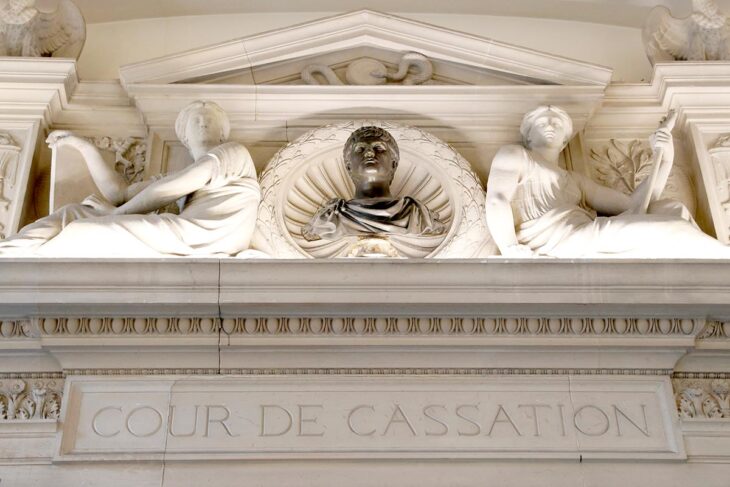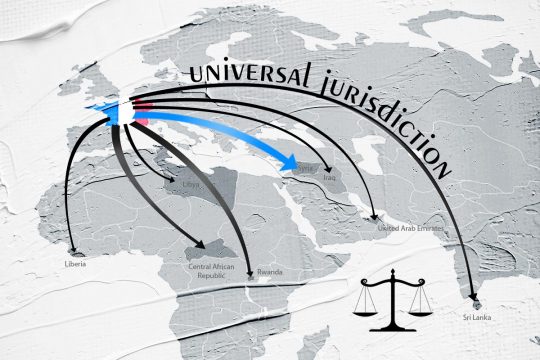France's highest court ruled Friday that the country can try foreign suspects under the universal jurisdiction principle, greenlighting inquiries into two Syrians accused of war crimes and crimes against humanity.
The ruling was welcomed by rights groups who said it would also have a significant on dozens of other cases concerning a range of conflicts across the world.
"The court recognises the principle of universal jurisdiction for the French judiciary in two cases concerning Syria," the Court of Cassation said in a statement.
The decision allows for investigations to continue in the cases against former Syrian soldier Abdulhamid Chaban, charged with complicity in crimes against humanity; and Majdi Nema, a former spokesman for the Islamist group Jaysh al-Islam accused of torture and war crimes.
Both Chaban, who was arrested in France in 2019, and Nema, detained while on a studying trip to the southern city of Marseille the following year, deny any wrongdoing.
They both tried to argue that they should not have been charged with war crimes and crimes against humanity because these crimes do not exist on their country's statute books.
Syria never ratified the Rome Statute, the founding treaty of the International Criminal Court that defines both crimes.
The court on Friday however decided that it was not necessary that "the offences of crime against humanity or war crime be identically described by the laws of the foreign country" for the inquiries into the two Syrians to go ahead.
Rights groups call for more
Nine rights groups, including Human Rights Watch, Amnesty International and Reporters with Borders, welcomed the ruling in a joint statement.
"These decisions allow victims - who have no recourse to justice in their own countries or at the International Criminal Court - to bring cases in France to allow it to play an important role in the fight against impunity," said Jeanne Sulzer, of Amnesty International France.
But the French government still needs to close loopholes that "risk France becoming a safe haven for people responsible for the world's worst crimes", the rights groups added.
"France could play a key role in advancing international justice around the globe, but serious legislative changes need to follow," said Alice Autin of Human Rights Watch.
The French ruling is significant for 160 cases filed with a Paris court department handling crimes against humanity, covering 30 geographical areas also including Russia and Ukraine.
French magistrates in April ordered three senior Syrian regime officials to stand trial for complicity in crimes against humanity over the deaths of two French-Syrian nationals, but that relied on a separate law unrelated to universal jurisdiction.
Other European countries have however used the principle to try and convict alleged Syrian war criminals.
Germany last year convicted a former Syrian colonel of crimes against humanity and jailed him for life in the first global trial over state-sponsored torture in Syrian prisons.
Sweden and Austria have also sentenced Syrians for crimes during the civil war in their home country.
Syria's conflict has killed close to half a million people since it erupted in 2011 with a brutal crackdown on anti-government protests.
It has also forced around half of the nation's pre-war population from their homes, many of whom have sought asylum in Europe.





